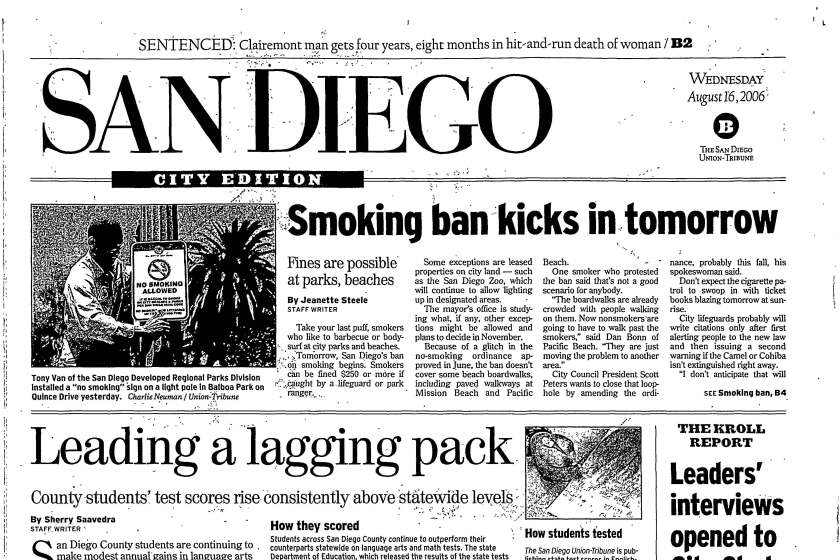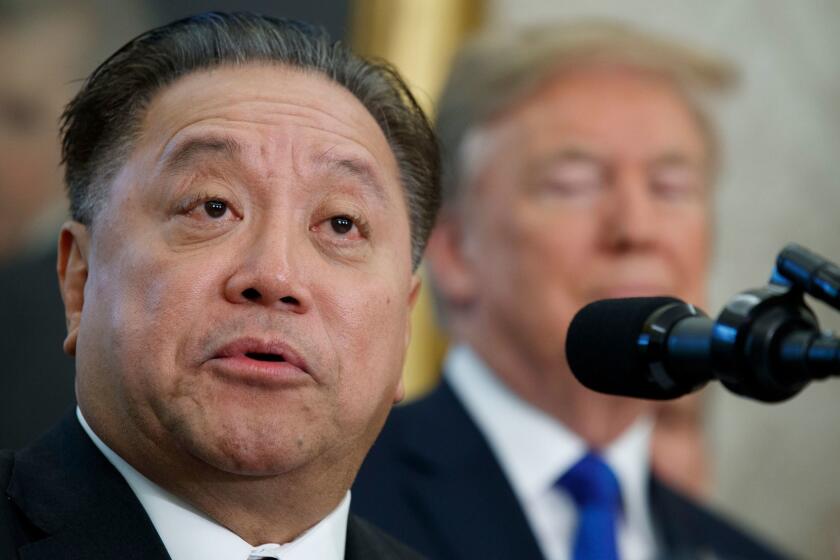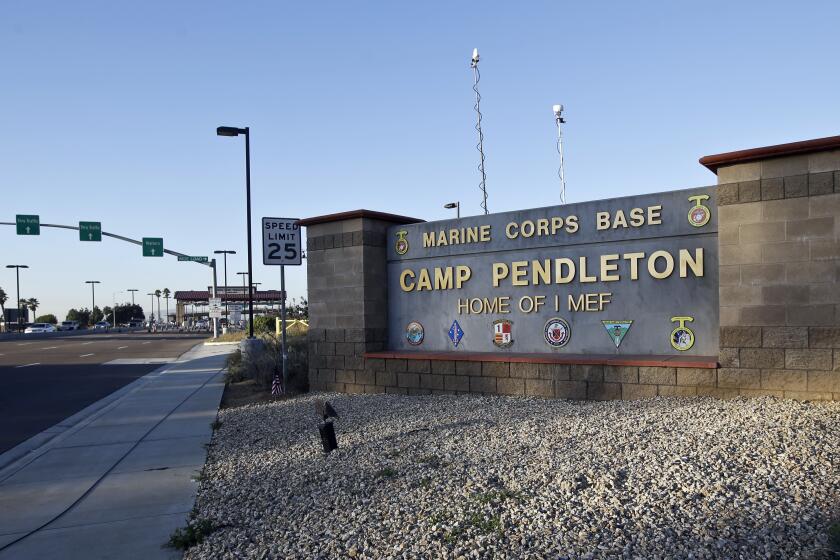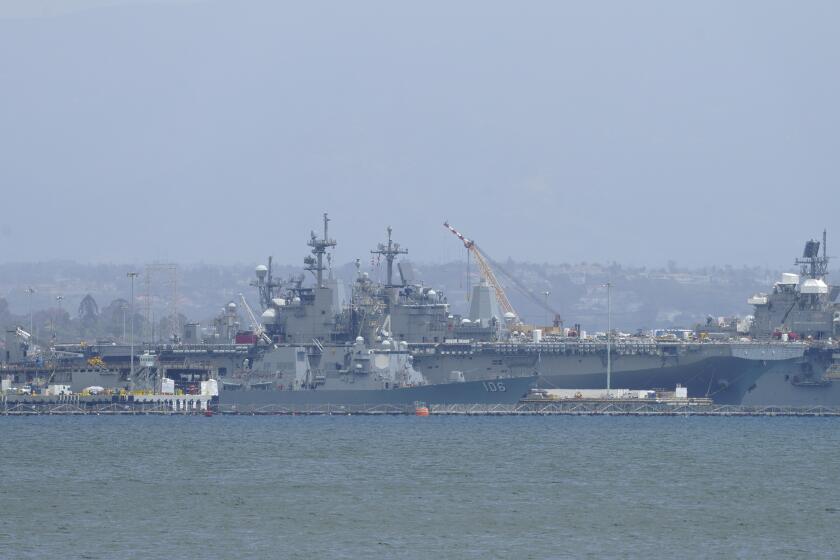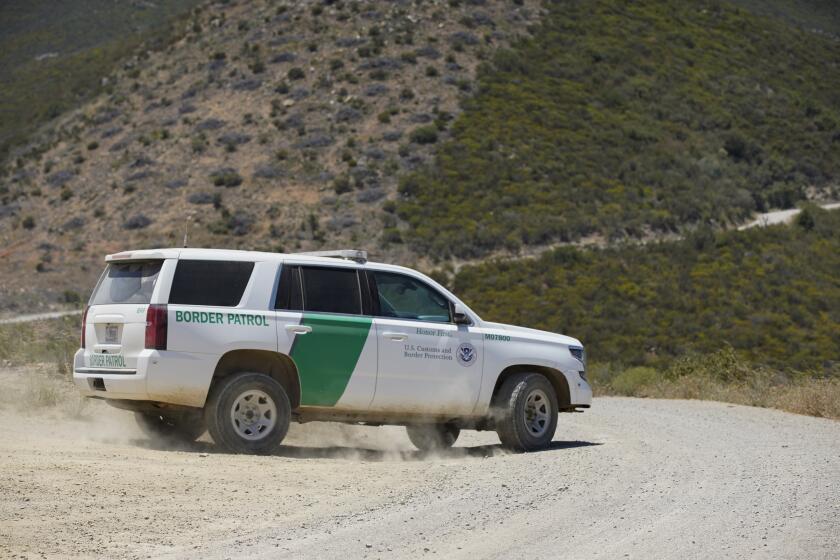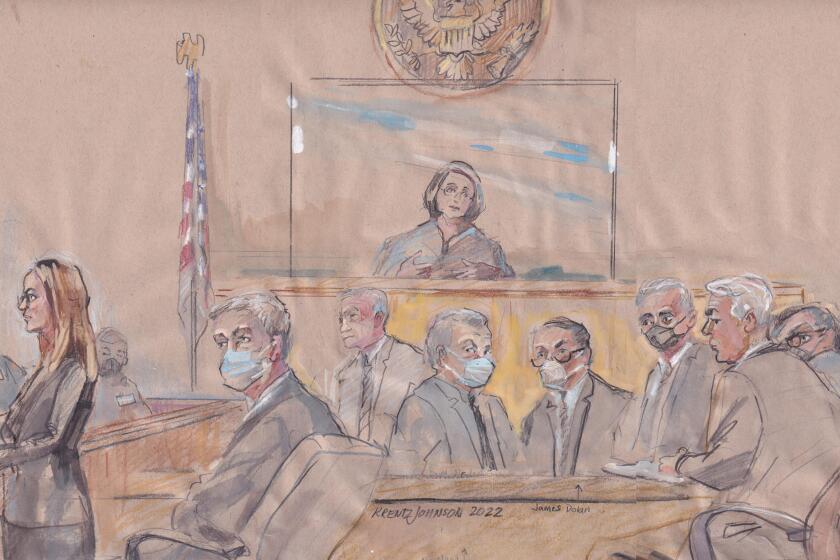In Pacific, China is full-time job
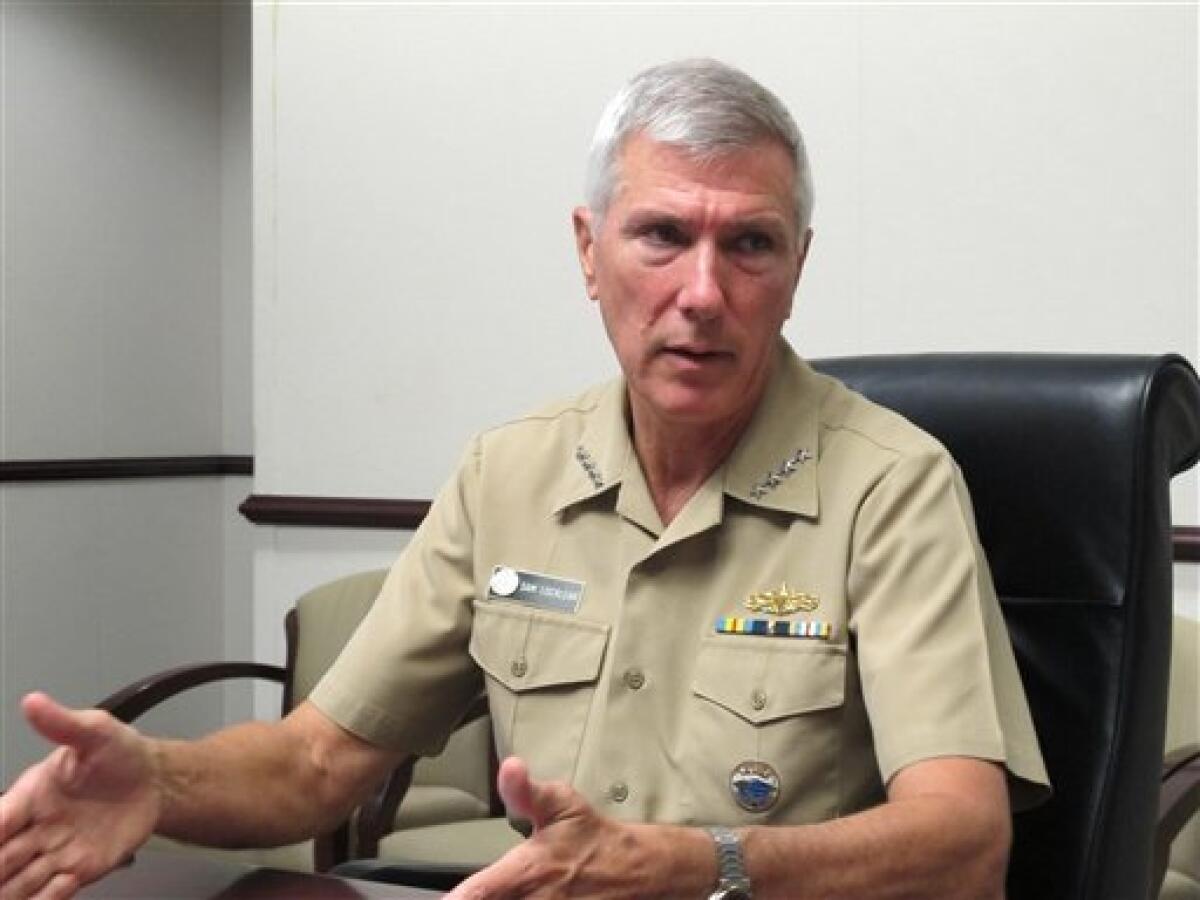
Adm. Samuel Locklear, the person in charge of the U.S. military presence from Hollywood to Bollywood, told a San Diego audience Tuesday that he thought the past two years would go better.
Instead, the U.S. Pacific Command leader said Syria is wracked with religious warfare that also has spilled into Iraq, Russia is flexing muscles against the Ukraine, North Korea is putting nuclear weapons on ballistic missiles and a rising China is fighting turf battles with its neighbors.
As for Libya, where Locklear led the 2011 U.S campaign Operation Odyssey Dawn against Moammar Gadhafi’s regime: “I would have expected (it) to be in a much better place than it is today,” he said.
Locklear, a four-star Navy admiral, told the San Diego Military Advisory Council on Tuesday that just as the United States looks ahead to another defense-spending crunch in 2016, the world order is cracking under the pressure of globalization.
“We try to figure out what’s causing this complexity and the amount of friction in the global environment,” Locklear said in his breakfast speech.
“As the world torques and changes around this interdependency globally, it creates fissures,” he said. “Some of those fissures are where we’re seeing those problems pop up.”
He predicted that population growth — what he called a population “bomb” over the next 50 years — will accelerate the trend.
“Most of those people are going to be young, disenfranchised, 15- to 19-year-olds who are going to be interconnected by cellphones and the Internet but are not going to have the opportunities that people in this country have,” Locklear said. “But they are going to want them.”
That discontent may cause governments to fail, he said, pointing to the Middle East as an example.
The militant group Islamic State, or ISIL, which steamrolled over the Iraqi army in recent months until U.S. air strikes began blunting its advance, is offering young Muslims an identity outside of their nationality.
“It’s going to probably result in organizations like ISIL that will fill the void left by state collapse with some other ideology that makes (these young people) feel like they are part of something that will make their life better,” Locklear said.
As commander of the Hawaii-based Pacific Command, he went on to list the tension points around the Pacific.
•North Korea: Locklear called the nation “in my perspective, the most dangerous threat to global security that’s out there.”
He noted North Korean leader Kim Jong-un’s pursuit of nuclear weapons. “(He) demonstrated the ability to put that onto ballistic missiles,” Locklear said. “Now it’s a problem for our homeland. We can’t take our eye off of it.”
•Russia: Under President Vladimir Putin, Russia is sending more long-range flights into U.S. air defense zones in the north and exercising its navy.
“We’re not seeing any particular threat to our nation. … It’s not of a significant magnitude yet to be concerned,” Locklear said. “But it’s indicative of I think where we’ll see Russia go in the next decade or so.”
•China: This summer, China joined the U.S.-led Rim of the Pacific exercises in Hawaii and San Diego. Locklear called the U.S. invitation the “right thing to do” as it encourages transparency in military behavior. But, he said, “China is going to have to make some hard decisions about how it wants to perform in the international security environment.”
Locklear said expansion of the Chinese military appears designed to counter the U.S. defense apparatus in the Pacific.
“How China goes is a full-time job for me,” he said. “We have to be very careful to make sure that, if they don’t make the right decisions, the security of the U.S., the security of our allies in Asia, remains strong.”
jen.steele@utsandiego.com (619) 293-1030 Twitter: @jensteeley
Get Essential San Diego, weekday mornings
Get top headlines from the Union-Tribune in your inbox weekday mornings, including top news, local, sports, business, entertainment and opinion.
You may occasionally receive promotional content from the San Diego Union-Tribune.

